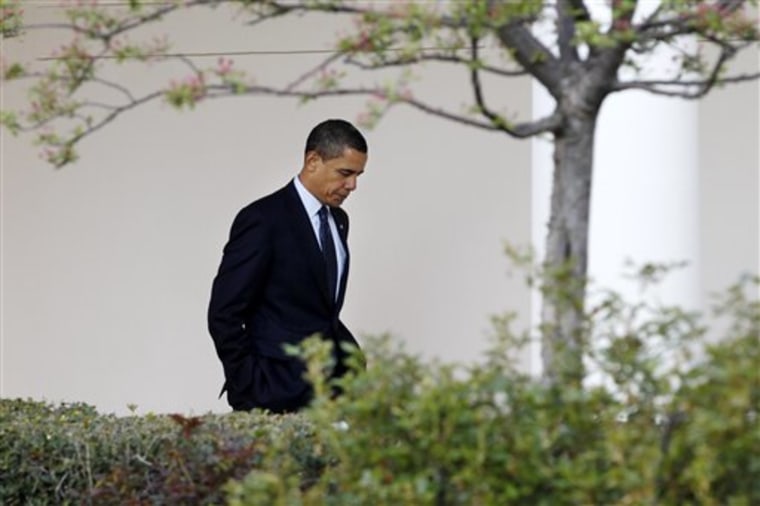President Barack Obama plans to nominate a federal judge from Maryland and another from New York to serve on U.S. appeals courts, changing the political balance of both courts, officials said Thursday.
The Maryland judge, Andre Davis, would serve on the Virginia-based 4th U.S. Circuit Court of Appeals if confirmed by the Senate. His confirmation would give the circuit six Democratic-appointed and six Republican-named judges, leaving three vacancies. The court has handled cases involving terrorism defendants or detainees.
Gerard Lynch would fill the only vacancy on the New York-centered 2nd Circuit, giving the court seven Democratic and six Republican judges. The court often presides over Wall Street-related financial cases.
"Judges Lynch and Davis are two jurists with exceptional records of integrity and fairness," Obama said in a statement. "They will be voices of reason and evenhandedness on the Second and Fourth Circuits."
There currently are 15 vacancies in federal appeals courts covering 12 geographically based circuits. They often provide the last word on a variety of issues affecting Americans.
Their decisions cover, among other matters, civil rights, searches and seizures, age and gender discrimination, religious liberty, capital punishment, abortion, gay rights, corporate wrongdoing, review of federal regulations and terrorism.
The Bush administration had the opportunity to tilt the courts to the right. Obama can now make them less conservative.
The 2nd Circuit covers Vermont and Connecticut as well as New York. The 4th has jurisdiction in West Virginia, Maryland and the Carolinas as well as Virginia.
Lynch was appointed to the federal bench in 2000 by President Bill Clinton.
He presided over several high profile cases including a sexual harassment claim by a former executive of NBA's New York Knicks against Madison Square Garden; and the perjury case of a rap artist, Lil' Kim.
He has served as a federal and New York prosecutor, chief counsel for the York Commission on Government Integrity and an associate counsel in the Iran-Contra independent counsel's office.
"Judge Lynch is a class act, a world-class legal mind, and one of the sagest judges of the district court," said Sen. Charles Schumer, D-N.Y. "We could not have a better nominee to this critical court."
Davis has been a judge for 22 years, and this is his second opportunity for an appellate seat. Clinton nominated him for the 4th Circuit in October 2000, but the Senate didn't have time to vote before the Bush administration took office.
Named to the federal bench by Clinton in 1995, Davis has served as an appellate attorney in the Civil Rights Division at the Justice Department and a federal prosecutor in Maryland.
Sen. Barbara Mikulski, D-Md., said Davis has "extensive judicial experience and a history of civic engagement."
Sen. Benjamin Cardin, D-Md., a member of the Judiciary Committee, added, "I cannot think of a better choice for this seat."
Judicial nominations have become partisan issues in the Senate, because federal judges have life terms and rule on so many politically explosive social issues.
On Wednesday, most Republicans boycotted the hearing for Obama's first judicial nominee, allowing Democrats to lob softball questions at David Hamilton in his quest for a seat on a Midwest appeals court.
The Senate Judiciary Committee will not vote on the nomination for several weeks. But with Republicans complaining of inadequate preparation time, the hearing signaled a rocky beginning to Obama's attempt to remake the federal judiciary.
